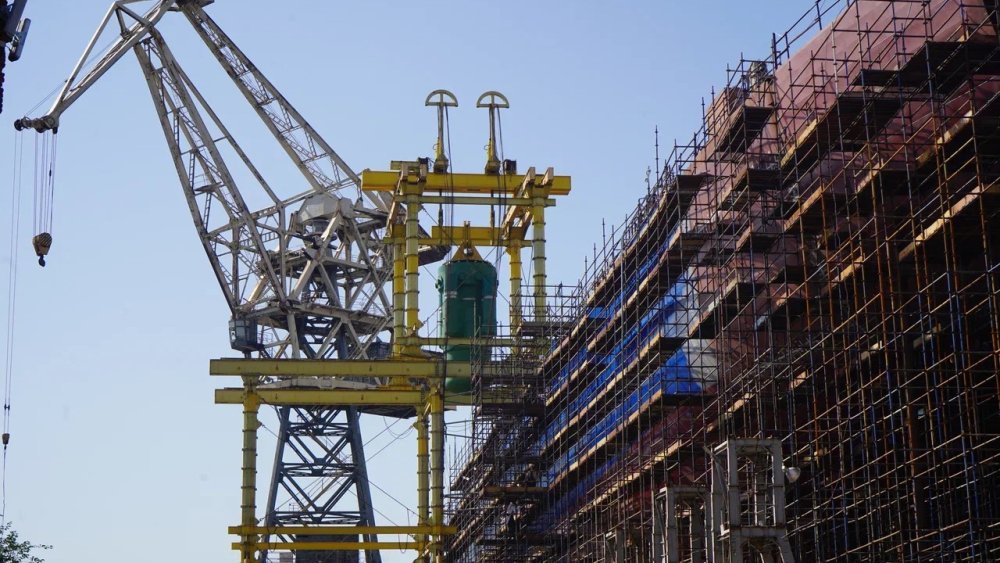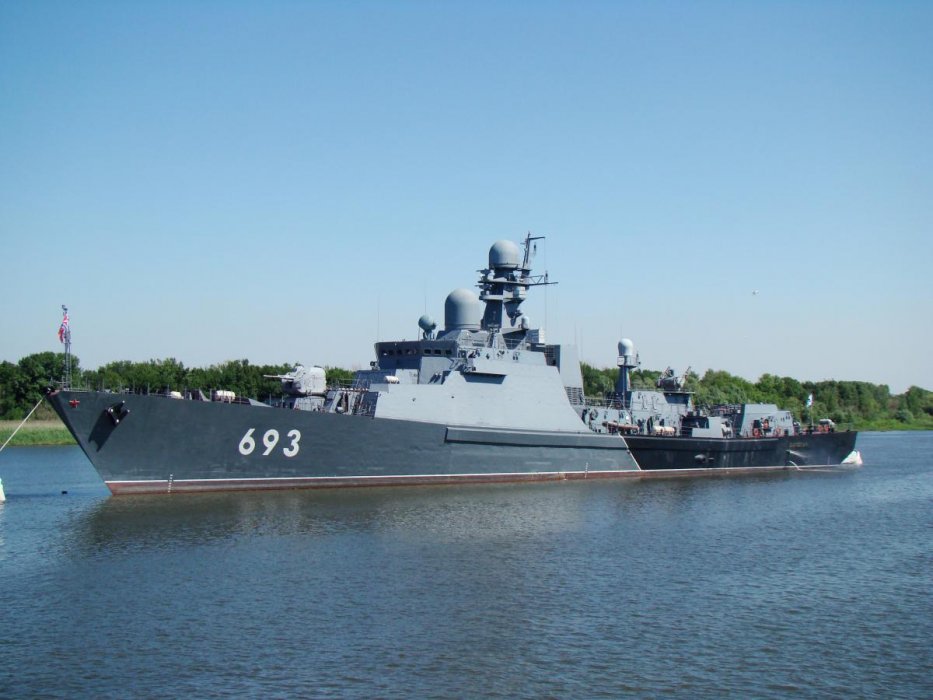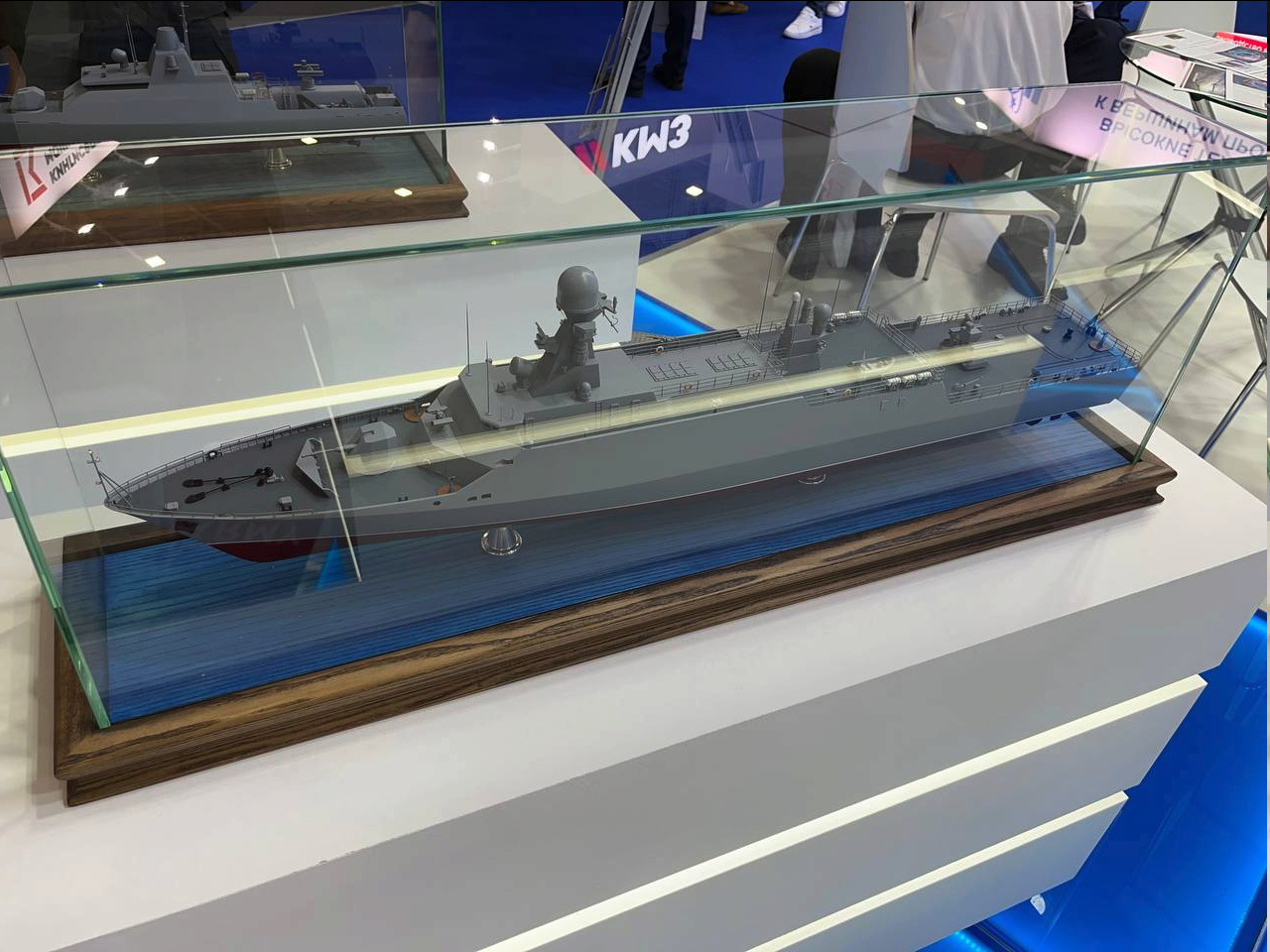On domestic shipbuilding in the context of a special military operation in Ukraine
The Russian shipbuilding industry is tasked with achieving technological sovereignty. This requirement is enshrined not only in the new Maritime doctrine, but also in the design bureaus and shipyards of the United Shipbuilding Corporation (USC) are working to achieve this goal. In an interview with TASS on the sidelines of the Army-2022 International Military-Technical Forum, the Deputy General Director spoke about the prospects of the Russian shipbuilding industry, the feasibility of adjusting its program to take into account a special military operation, the corporation's shipyards ' ability to speed up the repair and construction of units, and which ships the Russian fleet needs most today. USC for Military Shipbuilding Vladimir Korolev.
- Vladimir Ivanovich, do you plan to sign new contracts with the Ministry of Defense of the Russian Federation within the framework of the Army-2022 forum, as it was done earlier?
— Currently, the Russian Defense Ministry has not received any such proposals. However, our corporation is ready to consider them. Nevertheless, I would not like to reduce USC's participation in the Army forum to just signed contracts. Here people meet, questions are asked and answers are found that determine the future of our fleet.
— What ships do you think the Navy needs most at the present time? Is there an urgent need to adjust the shipbuilding program to take into account the special military operation in Ukraine?
— Of course, events such as a special military operation provide a lot of food for thought for all interested parties. Today, the information space is replete with various points of view on the issue of determining the ship composition of the fleet and conducting various forms of military operations. But the stated points of view are one thing, and the adjustment of the shipbuilding program is quite another. Of course, it is possible, but after a very balanced analysis of many factors. For example, the presidential decree "On approval of the New Maritime Doctrine of the Russian Federation"has just been signed. But do not think that it is a reaction to the events of recent months — the new Naval Doctrine has been prepared for more than one year, and it answers questions that have been accumulating for many years.
Adjustments to the current shipbuilding program are provided for every five years as part of the development of a new state armament program. The formation of such program documents by the Ministry of Defense of the Russian Federation is carried out in the process of multivariate research, which certainly ensures a rational distribution of allocated resources to achieve the maximum equipment and efficiency of the weapons system necessary and sufficient to protect Russia's interests from any external threats.
In my opinion, which ships are most needed by the Navy? I will not be original if I say that just those that are being built at the corporation's enterprises-otherwise why would we build them? These are a series of modern surface ships such as "frigate" and "corvette", a submarine fleet, including a series of nuclear submarines. By order of the Russian Defense Ministry, the corporation performs development work on the creation of new surface and submarine ships.
— In a number of media outlets, there are proposals to buy a large batch of ships in China for the emergency closure of the needs of the Russian Navy. To what extent do you think such initiatives are justified?
— In my opinion, the Russian shipbuilding industry, despite the existing objective difficulties, is able to solve all the tasks set to meet the needs of the Navy in the prescribed time frame. In the interests of national security of the country, it is necessary to have its own modern production base that provides a full life cycle from the creation to the disposal of ships with the possibility of their modernization.
I do not think that diverting financial resources to build ships in friendly countries is an effective solution to the issue of an emergency increase in their number. In addition, in this case, a number of questions will arise regarding crew training, operation, maintenance and repair, provision of spare parts, and finally-protection of state secrets.
This, of course, does not mean that we should completely curtail mutually beneficial military-technical cooperation with friendly countries. In the current international situation, it plays a positive role in ensuring regional security.
— In your opinion, are USC shipyards able to raise the speed of ship repair and construction to the level of the world's leading shipbuilding corporations?
— In my opinion, they are not only capable, but also should. But it's not just up to us. At the shipyards, work is constantly being done to reduce deadlines. For this purpose, enterprises are being equipped with new technological equipment, modern technologies are being introduced. However, it should be borne in mind that the share of the shipyard's own work in the construction of the ship is on average about 30%, the rest depends on the equipment suppliers. Therefore, the terms of construction of a ship are determined by two-thirds compliance with the terms of delivery of equipment with a long manufacturing cycle. When it comes to new weapons systems, some delays, unfortunately, are inevitable.
But if we, as the world's leading shipbuilding corporations, have orders for large series, stable supplies of components and financing, I am sure we will gain momentum. And we have proved it more than once — take submarines for example.
— The USC leadership has repeatedly stated that Russian nuclear submarines are built entirely from domestic components. And what is the situation with the problem of replacing foreign components in the construction of surface ships?
- Design bureaus-designers, together with cooperative enterprises and factories-builders of surface ships under the leadership of the USC and the Ministry of Industry and Trade of the Russian Federation, are consistently working to replace foreign components with domestic ones in the face of sanctions pressure on the Russian Federation. Where it is not possible to do this in a short time, while foreign analogues are used, but the task of achieving technological sovereignty is set. This is also enshrined in the new Maritime Doctrine: "ensuring the technological independence of the Russian Federation in the field of shipbuilding".
— When is the Admiral Nakhimov Project 1144.2 M heavy nuclear-powered missile cruiser scheduled to go to sea for testing? And how does USC see the future for this ship? How do you assess its combat capabilities?
— The procedure and terms of testing are determined by the general schedule for the repair of the cruiser. The first sea launch of the cruiser for testing is planned after the completion of the entire complex of mooring tests. We are proceeding in compliance with the general schedule.
In accordance with the technical design of the ship, outdated systems and complexes will be replaced with modern weapons and military equipment, which in their characteristics correspond to the appearance of a promising ship. After the repair is completed, the Navy will receive a new modern ship capable of performing all its tasks in any area of the World's oceans.
— Is the transfer of the Generalissimo Suvorov Project 955A Borey-A nuclear-powered submarine to the Russian Navy confirmed this year?
— The ship is already at the test stage and will be transferred to the Navy after their completion.
— When can we expect the launch of the main upgraded frigate 22350M at Severnaya Verf?
- Laying is planned after the development of the technical design and working design documentation in the amount of at least 60%. All documents are prepared by the Northern Design Bureau, and the technical design will soon be submitted to the Russian Defense Ministry for approval.
— When will the final decision be made on the sixth building of project 11356? Does the Yantar shipyard have the necessary capabilities to complete the construction of this ship in the interests of the Russian Navy?
— The Ministry of Defense has not yet made a decision on this issue. PSZ Yantar has extensive experience in building ships of this project, three have already been transferred to the Navy. The technology has been developed, a stable cooperation of suppliers of component equipment has been created — we are ready to build if the Ministry of Defense decides to do so. You can also start building a new series of such ships.
— What are the prospects for completing the project 20385 Agile corvette at Severnaya Verf? What was the conclusion of the USC commission that investigated the causes and consequences of the fire on this ship?
— The commission for identifying the causes and consequences of a technical accident, which included representatives of the Ministry of Defense, the Ministry of Industry and Trade of Russia, and specialized organizations, made the main conclusion — about the possibility of completing the ship. We will complete it and transfer it to the Navy.
— Will some of the orders currently being executed by Severnaya Verf be transferred to other shipyards of the corporation?
— No, such a transfer is not planned. Severnaya Verf is now expanding its production facilities. A new complex with modern equipment is being built on its territory. With its introduction, the shipyard will be able to increase the range and basic dimensions of its products, reduce the duration of construction orders.
— What projects are implemented by the corporation together with the Foundation for Advanced Research (FPI)? Can you tell us more about some of them?
— Together with the FPI, we have two works related to underwater research. This is the Uragan advance project and the further development of the Vityaz-D project. The first, generally speaking, is a marine mobile robotics system, and the work performed by us is highly appreciated by the customer. The second is a deep-sea robotic complex, which will be retrofitted with new research equipment.
— The Military Department plans to create bases in the Arctic. Will icebreakers and ice-class supply vessels be built to ensure their operation?
— In terms of military shipbuilding, ice-class patrol ships of Project 23550 are already being built for the Navy. Proposals for the construction of ships and vessels of other projects have not yet been received.
— Now very interesting projects for shipbuilding are increasingly appearing: the Varan universal sea ship (Nevsky Design Bureau), the Strazh submerged patrol ship (Rubin Design Bureau), the nuclear submarine for transporting liquefied natural gas (Malachit SPMBM), and others. How would you assess the prospects and uniqueness of such projects? Is there already any interest in them from specific customers, including the Russian Navy?
— Yes, indeed, today various interesting projects are being developed within the framework of initiative developments, both from an engineering point of view and from a shipbuilding point of view. In many ways, they are unique and can be used in various areas of the national economy, tourism and, of course, in the interests of the country's defense. But, like any other beautiful and bold projects, they must first interest the customer. And customers in the shipbuilding industry, as a rule, have conservative views in a good way, and their decisions are based primarily on the economic component, which is very difficult to calculate for completely new vessels. Therefore, customers prefer something more understandable, proven, preferably with operational experience.
Nevertheless, such initiative developments make sense, and USC encourages them.
Because, despite the immediate economic feasibility, we have a great desire to become world leaders on some topics
Just as the first nuclear — powered icebreaker Lenin once made our country a leader in this area, we still hold the lead in nuclear shipbuilding.
— Are the enterprises and design bureaus that are part of the USC working on creating completely new projects — ships of the future? What kind of ships will they be, and how much will their appearance change? And how do you see the domestic shipbuilding industry in 10-20 years?
— Of course, such work is underway. They are aimed at improving the combat effectiveness of ships, improving the quality of weapons and technical means of ships, increasing their ammunition.
However, the main changes will still take place in a different area. In the near future, along with manned ships, unmanned autonomous robotic ships will go to sea. And on those ships where the crew remains, integrated combat control systems will be implemented, which will combine systems for various functional purposes.
As for the prospects of shipbuilding, in my opinion, it is necessary to pay attention to the introduction of the modular principle in the design and construction of ships, simplification of the process of restructuring production for new projects and automation of production processes. But no matter how far into the future we look, it is unlikely that we will see a deserted shipyard there. After all, building ships and putting your heart and soul into them is not a robot's job, but a human's.
https://tass.ru/interviews/15461475







